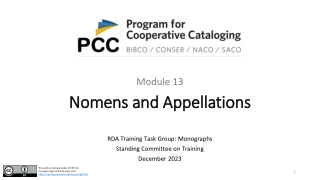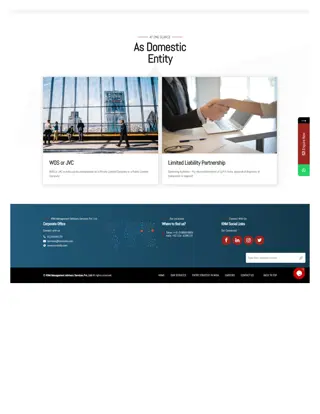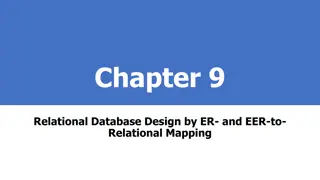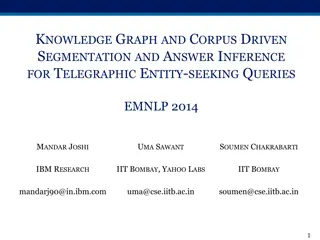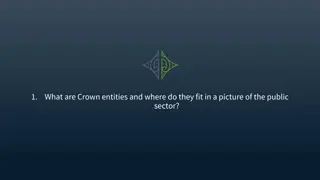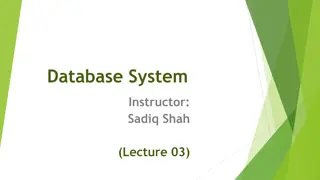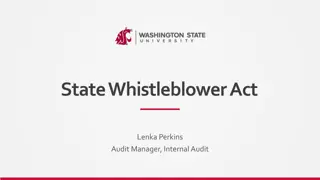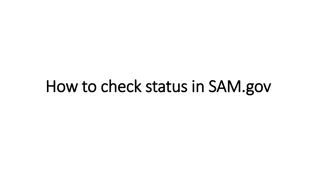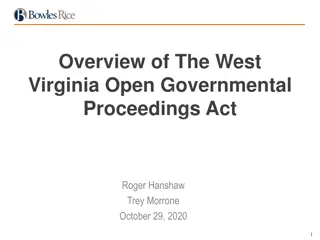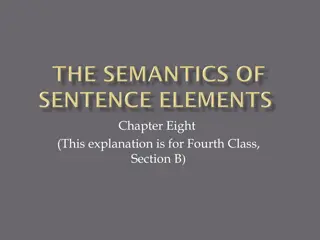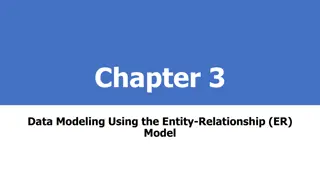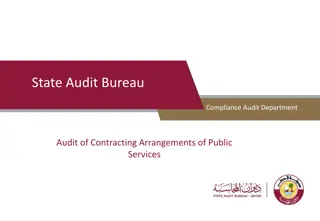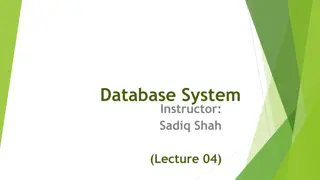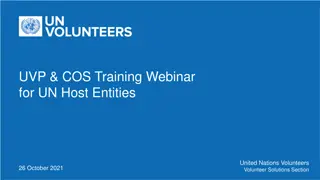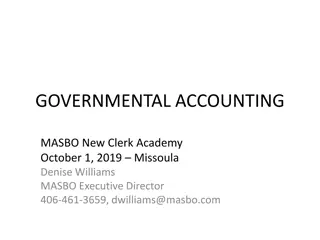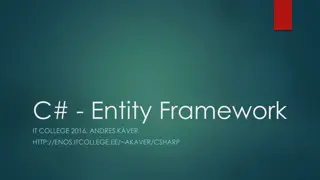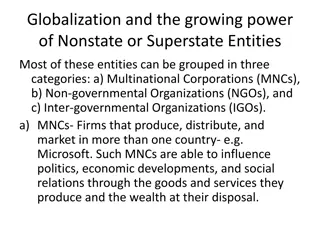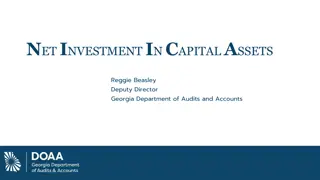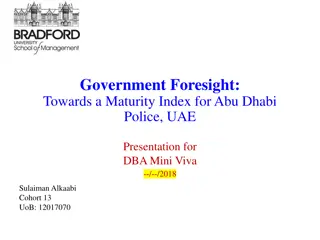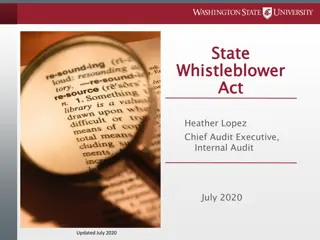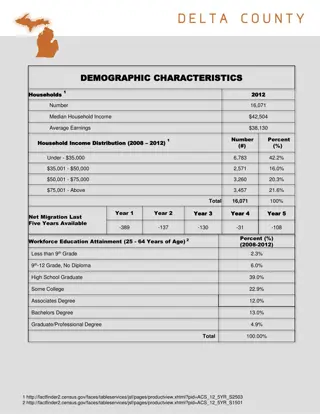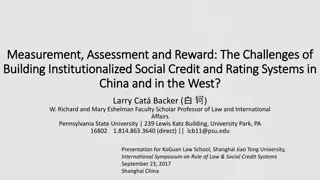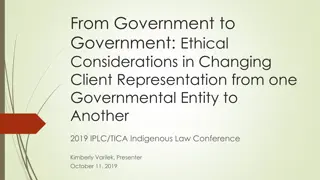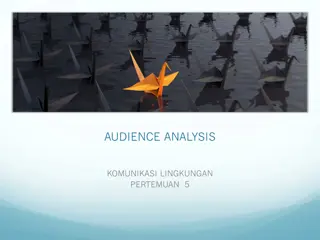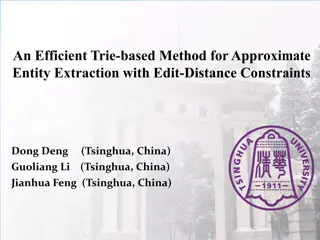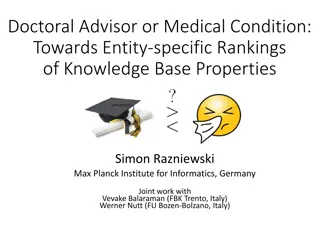Understanding Nomen Entity in RDA Training Module
Explore the development of the Nomen entity in RDA training, differentiating nomen and nomen strings, identifying RDA elements for describing a nomen, and examining relationship elements linking RDA entities with nomens. Delve into the origins and attributes of nomens as defined in FRBR and FRAD sta
1 views • 48 slides
Progressive Approach to Relational Entity Resolution
In this research paper authored by Yasser Altowim, Dmitri Kalashnikov, and Sharad Mehrotra, a progressive approach to relational entity resolution is presented. The study focuses on balancing cost and quality in entity resolution tasks for relational datasets. The goal is to develop a method that ac
1 views • 20 slides
Guide to Legalizing Your Documents for Use in China
Learn the detailed process of legalizing your documents for official use in China, including the consular legalization procedure, authentication of governmental and non-governmental documents, and certification of third-country passports. Follow these steps to ensure the authenticity and validity of
5 views • 9 slides
knmindia-as-domestic-entity
\nAT ONE GLANCE\nAs Domestic Entity\n\/\/knmindia.com\/wp-content\/uploads\/2021\/03\/Joint-Ventures.png\nFind out more\nWOS or JVC\nWOS or JVC in India can be incorporated as a Private Limited Company or a Public Limited Company.\n\/\/knmindia.com\/wp-content\/uploads\/2021\/03\/LLP.png\nFind out m
0 views • 1 slides
Understanding Relational Database Design and Mapping Techniques
Explore the process of mapping Entity-Relationship (ER) and Enhanced Entity-Relationship (EER) models to relational databases. Learn about relational model concepts, mapping algorithms, and the goals and steps involved in the mapping process. Discover how to preserve information, maintain constraint
1 views • 42 slides
Knowledge Graph and Corpus Driven Segmentation for Entity-Seeking Queries
This study discusses the challenges in processing entity-seeking queries, the importance of corpus in complementing knowledge graphs, and the methodology of segmentation for accurate answer inference. The research aims to bridge the gap between structured knowledge graphs and unstructured queries li
0 views • 24 slides
Differences Between Statutory Crown Entity Boards and Commercial or NGO Boards
Statutory Crown entity boards differ from commercial or NGO boards in terms of ministerial influence, funding limitations, public scrutiny, and government standards. The responsible Minister has more interaction, and boards have limited discretion in funding and pricing adjustments. Crown entities f
1 views • 19 slides
Understanding Entity-Relationship Modeling in Database Systems
Explore the concept of Entity-Relationship Modeling in Database Systems through examples like the E-R Model, E-R Diagrams, and Business Rules. Learn about entities, relationships, attributes, and cardinalities to design efficient databases.
0 views • 18 slides
West Virginia Governmental Ethics Act & Pecuniary Interest Statute Overview
West Virginia Governmental Ethics Act applies to public servants and employees, setting rules to prevent private gain from public positions. Pecuniary Interest Statute addresses conflicts related to contracts and compensation. The Ethics Commission enforces these laws through advisory opinions and i
0 views • 45 slides
Overview of State Whistleblower Act in Washington State
The State Whistleblower Act in Washington State, governed by the Revised Code of Washington (RCW) 42.40, provides a mechanism for state employees to report improper governmental actions. The Act aims to encourage whistleblowers to come forward, prohibits retaliation, and authorizes remedies for viol
0 views • 28 slides
How to Check Status in SAM.gov
SAM.gov is a crucial site for checking the status of registrations and validations. Once logged in, users can visit the workspace to monitor their status daily, apply, or renew. The process involves validating entities, obtaining a Unique Entity ID, entering core data and assertions, completing Reps
0 views • 8 slides
Understanding the West Virginia Open Governmental Proceedings Act
The West Virginia Open Governmental Proceedings Act promotes transparency in government by allowing public input to shape actions and policies. It emphasizes the importance of openness, public access, and informed control over government operations. The act covers meeting notices, conduct, minutes,
0 views • 37 slides
Understanding Entity-Relationship Model in Database Systems
This article explores the Entity-Relationship (ER) model in database systems, covering topics like database design, ER model components, entities, attributes, key attributes, composite attributes, and multivalued attributes. The ER model provides a high-level data model to define data elements and r
0 views • 25 slides
Understanding Semantic Roles in Sentence Structure
Semanticists analyze sentences based on semantic structure rather than traditional syntactic terms like subject and object. Instead, they use semantic terms such as Agent, External causer, Instrument, Affected, Recipient, and Locative. These terms help describe how people and things participate in r
1 views • 26 slides
Data Modeling Using the Entity-Relationship (ER) Model
This chapter discusses data modeling using the Entity-Relationship (ER) model, covering concepts such as entities, attributes, relationships, and database design processes. It outlines the design process, entity types, value sets, key attributes, weak entities, and more. The chapter also provides an
0 views • 57 slides
State Audit Bureau in Qatar: Ensuring Accountability and Transparency
The State Audit Bureau in Qatar, established in 1973, plays a crucial role in safeguarding public funds, ensuring compliance with laws, and enhancing transparency. Through its audit of contracting arrangements in the public sector, the Bureau aims to improve resource utilization for sustainable deve
0 views • 18 slides
Understanding Modeling Entities and Attributes in Database Systems
Entities, relationships, and attributes are fundamental constructs in the Entity-Relationship (E-R) model. Entities represent people, places, objects, events, or concepts in a user environment. Each entity type has a set of attributes defining its properties. It is crucial to distinguish between ent
2 views • 17 slides
Unified Volunteering Platform: Host Entity Account Management Training Update
Explore the recent updates in the Unified Volunteering Platform focusing on Host Entity account management training, webinars for UN Host Entities, and the launch of new self-service features. Learn about the roles within Host Entity accounts and the transition to the new system. Contact support for
0 views • 7 slides
Fund Accounting Overview and Types of Funds in Governmental Accounting
Fund accounting in governmental organizations involves segregating financial resources into self-balancing accounts to facilitate specific activities and objectives. This practice ensures compliance with regulations and restrictions, such as GAAP and state laws. Various types of funds, including gov
0 views • 41 slides
Understanding Nutrition Cluster Structures and Roles
Learn about the structures and roles within Nutrition Clusters at different levels, including the responsibilities of key actors such as the Cluster Coordinator, Information Manager, Strategic Advisory Group, and Technical Working Groups. Explore the involvement of governmental and non-governmental
0 views • 27 slides
Entity-based Memory Network for Text Comprehension
Entity-based Memory Network is a model designed for text comprehension, focusing on question-answering tasks in both open and closed domain QA. It incorporates features like distributed representation, feature modeling, and memory models at various levels to generate output features, predict answers
0 views • 17 slides
Understanding the British Governmental System and Monarchy
Explore the British governmental system and monarchy with insights into the House of Parliament, House of Lords, House of Commons, Buckingham Palace, and the Royal Flag. Discover the roles and functions of key institutions in the UK's political framework.
0 views • 13 slides
Overview of APESS-Nigeria's PAMOBARMA Project Activities in North West Nigeria
APESS-Nigeria, in collaboration with various governmental and non-governmental organizations, has been implementing the PAMOBARMA project in Katsina, Kebbi, and Sokoto states of Nigeria since 2018. The project focuses on promoting livestock farming and enhancing market opportunities for pastoralists
0 views • 25 slides
Understanding Sovereign Immunity and Contracts in Legal Context
Explore the intricacies of sovereign immunity and contracts in legal settings, including waivers, elements of immunity waiver, contractual implications, and the distinction between proprietary and governmental functions of local governmental entities. Delve into the key aspects that govern these leg
0 views • 14 slides
Understanding Entity Framework in C# for Database Management
Entity Framework in C# offers a powerful ORM solution for data manipulation and database management. It allows developers to work with databases in an object-oriented manner, simplifying the handling of database operations. Learn about ORM, Code First approach, conventions, DbContext usage, and data
0 views • 21 slides
Globalization and the Influence of Nonstate Entities
Globalization is shaped by the power of Multinational Corporations (MNCs), Non-governmental Organizations (NGOs), Inter-governmental Organizations (IGOs), and technological advancements. These entities wield influence on politics, economics, and social dynamics globally. The authority and legitimacy
0 views • 4 slides
Understanding Net Investment in Capital Assets and Its Importance
Net Investment in Capital Assets is a critical component of an entity's financial position, reflecting the value of capital assets owned. It represents the portion of the net position that is not spendable as it is invested in assets. Calculating Net Investment in Capital Assets involves subtracting
1 views • 17 slides
Automated Knowledge Base Construction: Taxonomy Induction and Entity Disambiguation Overview
Explore the foundations of automated knowledge base construction through taxonomy induction and entity disambiguation frameworks. Learn about organizing and distinguishing entity types, the significance of structuring entities like physicists, villages, and chemical formulas. Delve into the inputs,
0 views • 53 slides
Developing a Maturity Index for Foresight in Abu Dhabi Police: A Groundbreaking Study
Exploring the implementation of foresight techniques in governmental organizations, particularly in the Abu Dhabi Police, this study aims to develop a maturity index to assess and enhance decision-making processes. By collecting data from top organizational leaders, the research seeks to identify st
0 views • 9 slides
Understanding the State Whistleblower Act: Reporting Improper Governmental Actions
The State Whistleblower Act, enacted in 1982 and amended in 1999 and 2008, provides a platform for state employees to report improper governmental actions. It aims to encourage reporting and prohibits retaliation against whistleblowers. Improper actions include gross waste of resources, violations o
0 views • 25 slides
Demographic and Governmental Overview of Escanaba City and Delta County
This information provides a detailed overview of the demographic characteristics and governmental structure of Escanaba City and Delta County in Michigan. It covers data on household income distribution, workforce education attainment, city government officials, county government administration, sta
1 views • 14 slides
Challenges of Building Social Credit Systems in China and the West
The presentation by Larry Cat Backer explores the challenges of constructing institutionalized social credit and rating systems in China and the West. It delves into the intricacies of measuring, assessing, and rewarding individuals and entities based on criteria like governmental sincerity, commerc
0 views • 19 slides
Submission to Governmental Authorities in the Bible
The Bible emphasizes the importance of honoring and submitting to governmental authorities as they are appointed by God. Passages from 1 Peter and Romans instruct believers to obey rulers, governors, and kings, not using freedom as a pretext for wrongdoing. By following these teachings, individuals
0 views • 26 slides
Ethical Considerations in Changing Client Representation between Governmental Entities
This presentation focuses on ethical considerations when transitioning client representation from one governmental entity to another, emphasizing the importance of informed consent, confidentiality, and avoiding conflicts of interest. Rule 1.9(c) plays a key role in regulating the use of former clie
0 views • 8 slides
Effective Audience Analysis for Successful Communication
Understanding the target audience is crucial for effective communication. This involves analyzing who the audience is, why it is important to communicate with them, and how messages can be tailored to meet their specific needs. By identifying parameters, customization strategies, and desired reactio
0 views • 19 slides
Registered Agents Requirement for Business Entities in Colorado
Colorado law requires every domestic and foreign business entity operating in the state to maintain a registered agent. This agent can be an individual, a domestic entity, or a foreign entity with a place of business in Colorado. The registered agent is authorized to receive legal documents and noti
0 views • 9 slides
Challenges of Religious Literacy in Humanitarian Response within Governmental and Political Context
Challenges arise in humanitarian response within governmental and political contexts due to secular approaches in religious societies. Issues include discriminatory practices against local faith-based organizations (FBOs), unhelpful gender dynamics, harmful social practices, and simplistic charity m
0 views • 6 slides
Trie-based Entity Extraction Framework for Dirty Real-World Data
Researchers from Tsinghua University, China, have developed a Trie-based framework for entity extraction in real-world data, addressing challenges such as dirty data and typos in author names and titles. The framework leverages Trie-based algorithms to optimize partition schemes and extract named en
0 views • 56 slides
Entity-specific Rankings of Knowledge Base Properties
Towards entity-specific rankings of knowledge base properties, this research explores the problem of property ranking for entities based on their attributes and properties. Various applications in knowledge base curation and natural language generation are discussed, along with related work in entit
0 views • 26 slides
Debugging Blocker in Entity Matching using MatchCatcher
Explore how the MatchCatcher solution helps identify and improve matches killed off by blockers in the entity matching process. The solution allows users to quickly find and analyze these matches, enhancing the efficiency of the blocking stage in entity matching.
0 views • 24 slides
